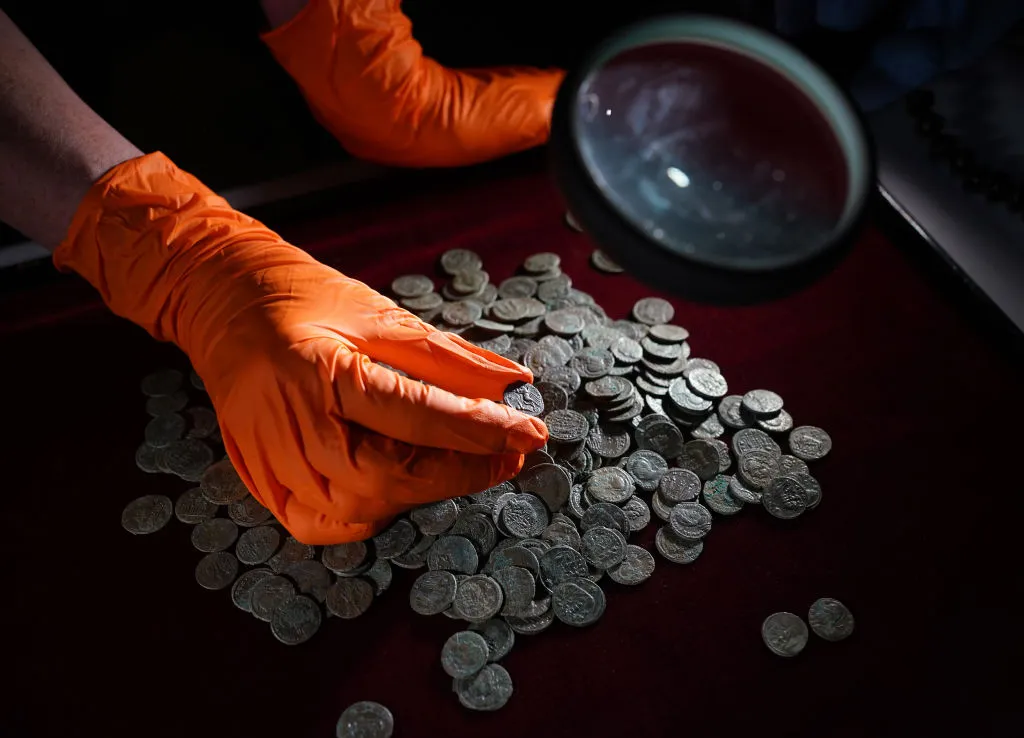
Photo Yui Mok/PA Images via Getty Images
Thousands of dollars worth of historical artifacts are suspected of being stolen in England, according to a report Thursday by the Daily Mail. The lost Roman era treasures were slated to be examined by the British Museum.
The trove includes 28 Roman silver coins and a silver ingot unearthed earlier this year in Rutland. The artifacts were given to the museum by the two metal detectorists who found them as required by law.
The objects were meant to be stored in a locked and secure facility inside the Lancashire County council-run building before being sent to the British Museum for assessment and valuation. When the British Museum asked for one of the finds to be transferred from the museum in Preston to London, however, the museum staff discovered the requested object was missing.
A quick audit carried out with the British Museum determined that as many as 12 sets of artifacts and their casework files were gone. Further audits conducted by the council have found other missing artifacts and, in October, the police were called in to investigate.
An email sent by the cultural services department at Lancashire County Council confirmed their disappearance. In the message, the objects’ disappearance was blamed on the actions of an individual or individuals unknown.
The disappearance could also impact the legitimacy of the British Museum’s Portable Antiquities Scheme and the government’s process for fairly administering treasure finds.
The PAS Scheme was started in 2003, amid concerns that a rise in metal detecting led to the loss of important archaeological finds. In order to better ensure that finds would be reported and evaluated, the scheme allows metal detectorists to voluntarily report their finds to a local Finds Liaison Officer, who is usually hosted by local council museums.
Artifacts deemed by law as “treasure” are then held to determine if they are of national importance, in which case museums and public institutions are given the opportunity to purchase them. In most cases, however, the finds are disclaimed and returned to the consignor.
Police are still investigating the suspected theft at this time.


